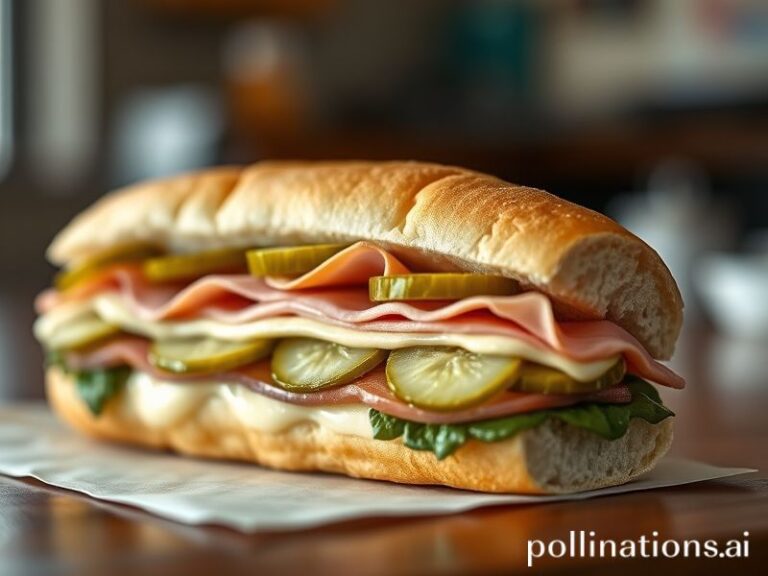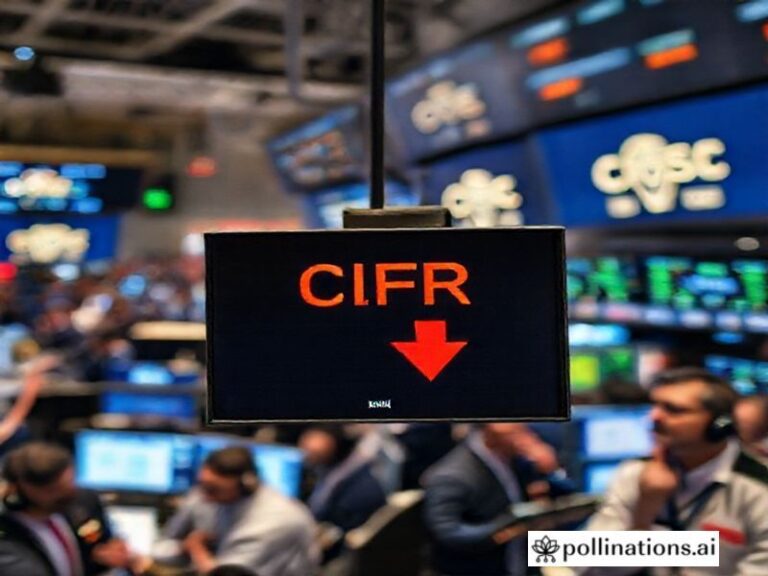Global Takeout: How Your 2 a.m. Dumpling Order Became a Geopolitical Flashpoint
The Geopolitics of Your Next Meal: How “Restaurants Near Me” Became a Proxy for Global Power
By the time you thumb “restaurants near me” into your cracked phone screen at 11:47 p.m. in whatever middling suburb, exurb, or time-zone-melted airport hotel fate has marooned you in, you are not merely hungry. You are pinging the entire planet. Somewhere in a fluorescent-lit server farm in Northern Virginia, an algorithm performs a nanosecond cost-benefit analysis that would make the World Bank blush: Is this user worth dispatching a 19-year-old on a moped through monsoon rain for pad thai? Does the margin on that gyro justify the carbon debt of a lamb raised on deforested Mongolian steppe? Congratulations—you’ve just triggered a miniature trade war between your stomach and the global supply chain.
Let us zoom out. In Paris, the Michelin Guide quietly deletes another starred bistro because the chef can no longer source Russian caviar without laundering it through a shell company in Dubai. In Lagos, a cloud kitchen ghost-cooks Korean-Mexican fusion for expats who miss authenticity the way billionaires miss empathy. Meanwhile, in suburban Ohio, a teenager scrolls the same pixelated burger emoji as a banker in Singapore, both of them reassured by the same five-star rating given by “Kevin T.”—a man whose entire culinary education appears to be a 2019 vacation to Myrtle Beach. The flattening of taste is almost heartwarming, in the same way that a nuclear winter would at least solve climate change.
The phrase “restaurants near me” is, of course, a lie told by GPS. What it actually means is “restaurants willing to subsidize my laziness.” The kebab shop that appears first is not necessarily the closest; it is merely the one that paid the platform an extortion fee equivalent to the GDP of Tuvalu. This is how a Syrian refugee family’s meticulously spiced shawarma loses the algorithmic battle to a franchise whose lamb is technically a rehydrated soy protein composite. Somewhere, a data scientist updates a spreadsheet labeled “Consumer Engagement Optimization” and feels a brief flicker of pride before remembering his own dinner was a lukewarm burrito eaten over the sink.
There is tragic poetry in watching nations project soft power through takeout. South Korea exports K-pop and bibimbap bowls in recyclable black plastic; Italy counters with franchised “Osteria Moderna” concepts where the carbonara is made with shelf-stable cream because the real stuff might violate FDA dairy quotas. Japan, ever the minimalist, simply uploads a QR code that beams a 3D hologram of ramen into your living room—no noodles, but zero calories and thus, technically, a moral victory. The U.S., never to be outdone, invents a ghost kitchen that only exists in the metaverse; your burger is NFT-broiled, your fries are blockchain-salted, and your indigestion is logged as a non-fungible regret.
Back on Earth, the driver arrives, soaked, underpaid, and clutching a paper bag that bears the sweat of three continents. Inside: a taco filled with beef traced to a feedlot in Brazil, lettuce irrigated by an aquifer that will outlive human civilization, and cheese that is legally cheese in the same way that airport sushi is legally food. You tip 12% because you’re not a monster, just an accomplice. The driver nods, pockets the $3.47, and drives off to deliver existential dread to the next customer before his phone’s battery—mined by children in the Congo—dies in a parking lot that used to be a forest.
And yet, amid the dystopia, there is a perverse solidarity. Whether you’re in Jakarta, Johannesburg, or Jacksonville, the same four emotional states orbit that Styrofoam container: hope (Maybe this time it’ll taste like the photo), betrayal (Why is the sauce radioactive orange?), resignation (I will eat this anyway), and déjà vu (I ordered this exact sadness last Tuesday). Globalization has delivered many things—pandemics, supply-chain collapses, the inexplicable popularity of truffle oil—but at least it has standardized disappointment.
So the next time you reflexively summon dinner from the glowing rectangle in your palm, spare a thought for the intricate ballet of geopolitics, exploited labor, and algorithmic cruelty that ferried that lukewarm dumpling to your door. Then eat it quickly, before it gets cold and the illusion of choice congeals into something even less digestible.







